The Centre for Constitutional Law and Legal Studies is pleased to have the following Research Associates:

Arash Abizadeh
Arash Abizadeh is professor in the Department of Political Science and associate member of the Department of Philosophy at McGill University. He received his BA(Hon) from the University of Winnipeg, MPhil from Oxford as a Rhodes scholar, and PhD from Harvard. His research has focussed on democratic theory; democracy’s relation to identity, nationalism, and cosmopolitanism; immigration and border control; social and political power; the role of passion, rhetoric, and discourse in politics; and seventeenth- and eighteenth-century philosophy, particularly Hobbes and Rousseau. His book Hobbes and the Two Faces of Ethics was published in 2018 by Cambridge University Press. He is currently working on a book titled Power, Subjection, and Democracy.

Richard Albert
Richard Albert is Professor of World Constitutions and Director of Constitutional Studies at the University of Texas at Austin. A scholar of constitutional reform and democratic values, he has published over twenty books, including Constitutional Amendments: Making, Breaking, and Changing Constitutions (Oxford University Press), The Oxford Handbook of Caribbean Constitutions (Oxford University Press), and Canada in the World: Comparative Perspectives on the Canadian Constitution (Cambridge University Press). He has held visiting faculty appointments around the world, including as the Canadian Bicentennial Visiting Professor at Yale University and as the inaugural Allan Rock Visiting Professor at the University of Ottawa. He has twice been appointed Distinguished Visiting Professor of Law at the University of Toronto and he has also served as a Visiting Professor of Law at FGV Direito in Brazil, Externado University of Colombia, Universidad de Especialidades Espiritu Santo in Ecuador, Airlangga University in Indonesia, and at Reichman University in Israel. Richard Albert is Co-President of the International Society of Public Law, founding director of the International Forum on the Future of Constitutionalism, and a former law clerk to the Chief Justice of Canada. Born and raised in Canada, he holds law and political science degrees from Yale, Oxford and Harvard.

Ryan Alford
Ryan Alford is a professor at the Bora Laskin Faculty of Law at Lakehead University. He is also a Bencher of the Law Society of Ontario, where he serves as the Vice-Chair of the Tribunal Committee, and he is an Adjudicator of the Hearing and Appeal Panels of the Law Society Tribunal. He is also a Senior Fellow of the Macdonald-Laurier Institute. He holds degrees in law from the University of South Africa, the University of Oxford, and New York University. He is an author and editor of several volumes on the subjects of constitutionalism and rule of law, including Seven Absolute Rights: Recovering the Foundations of Canada’s Rule of Law. Prior to joining Lakehead, he served on the University of Victoria Faculty of Law, and he was also a Visiting Fellow of the Max Planck Institute for Legal History and Legal Theory. He is the Applicant in an constitutional challenge to the stripping of parliamentary privilege from members of the National Security and Intelligence Committee of Parliamentarians, and he was the Applicant in a challenge to the constitutionality of the Law Society of Ontario’s statement of principles requirement.

James Allan
James Allan holds the oldest named chair at the University of Queensland where he is the Garrick Professor of Law. He is a native born Canadian who practised law at a large firm in Toronto and then at the Bar in London before moving to teach law in Hong Kong, New Zealand and then Australia. He has had sabbaticals at the Cornell Law School and the University of San Diego School of Law in the US and at Osgoode Hall Law School and the Dalhousie Law School in Canada (where he was the Bertha Wilson Visiting Professor of Human Rights), as well as at King’s College Law School in London. Allan has published widely in the areas of constitutional law, legal philosophy and bill of rights scepticism. In 2014 he published his book Democracy in Decline, aimed at the educated layperson. In 2016 he edited and contributed to Making Australia Right, a collection of essays on the poor state of Australia’s right-of-centre government – revisited in the 2020 Keeping Australia Right book which he co-edited. Allan also has two new books coming out soon, one tentatively titled A Doubter’s Guide to Constitutionalism in Modern Democracies and the other (co-authored with three Americans) provisionally titled A Principled Constitution: Four Skeptical Essays. Allan also writes regularly for weeklies and monthlies including being a weekly contributor to The Spectator Australia, a semi-regular one to Quadrant, and an occasional one to The Australian, to Canada’s National Post, to the US’s Law & Liberty and to Britain’s The Conservative Woman. He was elected to the Mont Pelerin Society in 2011.
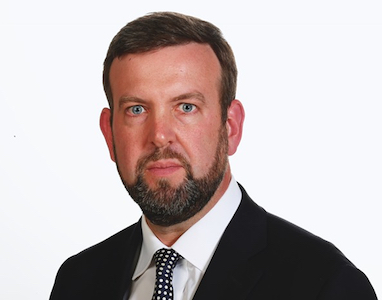
Howard Anglin
Howard Anglin attended McGill University where he received a BA (Hons), NYU Law School where he received a JD and was an editor of the NYU Law Review, and the University of Oxford, where he received an MPhil (with distinction) in law. He clerked on the United States Court of Appeal for the Ninth Circuit and practised corporate law with international law firms in New York and London and appellate litigation in Washington, DC. He has served as Chief of Staff to Canada’s Minister of Citizenship and Immigration, as Senior Advisor for Legal Affairs and Policy, Deputy Chief of Staff, and Acting Chief of Staff to the Prime Minister of Canada, and as Principal Secretary to the Premier of Alberta. He is currently pursuing a DPhil in constitutional law at the University of Oxford. He has written widely on legal matters, as well as politics and culture.

Dennis Baker
Dennis Baker is associate professor of political science at the University of Guelph. He is the author of Not Quite Supreme: The Courts and Coordinate Constitutional Interpretation (McGill-Queen’s University Press, 2010). His research interests include the separation of powers, criminal justice policy, and the politics of private law. His work has appeared in the Review of Constitutional Studies, Canadian Public Administration, and the Supreme Court Law Review. He is a graduate of the University of Toronto Faculty of Law and holds a PhD in political science from the University of Calgary.
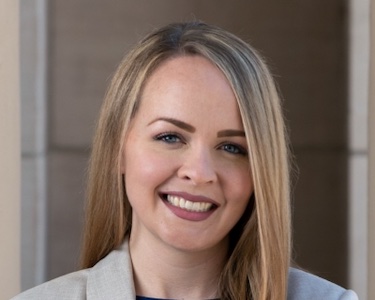
Stephanie Barclay
Stephanie Barclay is an associate professor of law at Notre Dame Law School, where she also directs the Notre Dame Religious Liberty Initiative. Her research focuses on the role our different democratic institutions play in protecting minority rights, particularly at the intersection of free speech and religious exercise. Barclay’s academic writing has been published or is forthcoming in publications such as the Harvard Law Review, the Washington University Law Review, the Notre Dame Law Review, and the Boston College Law Review. Prior to joining the Notre Dame faculty, Barclay was an associate professor of Law at BYU Law, where she was twice voted Professor of the Year by her second- and third-year students. Before becoming a professor, Barclay litigated First Amendment cases full-time at The Becket Fund for Religious Liberty, where she represented many organizations and individuals at both the trial and appellate level, including before the U.S. Supreme Court. Barclay was nominated to serve as the Chair Elect for the AALS Law and Religion Section, and she is a Nootbar Fellow at the Nootbar Institute for Law, Religion, & Ethics at Pepperdine University. She graduated summa cum laude from BYU Law School, where she was elected to the Order of the Coif. Barclay also clerked for the Honorable N. Randy Smith on the U.S. Court of Appeals for the Ninth Circuit.

Sean Beienburg
Sean Beienburg is an assistant professor of American constitutionalism in the School of Civic and Economic Thought and Leadership at Arizona State University. He is the author of Prohibition, the Constitution, and States’ Rights, the upcoming Progressive Federalism and he directs the Arizona Constitution Project. He previously taught at Haverford College and Lehigh University, and completed his doctorate at Princeton University. His teaching and research interests include the U.S. Constitution and constitutional law, Arizona constitutionalism, federalism and state constitutionalism/politics, American political thought and development, executive power (both presidential and gubernatorial), parties and interest groups, 19th and early 20th century political and constitutional history, and Prohibition.

Ian Brodie
Ian Brodie is a professor in the Department of Political Science and a Fellow at the Centre for Military, Security and Strategic Studies. He is also Program Director at the Canadian Global Affairs Institute, a Fellow of the Halifax International Security Forum and Chair of the Research Committee at the Institute for Research on Public Policy. Brodie worked at the highest level of politics and public policy as a senior member of the team that created the Conservative Party of Canada and propelled Stephen Harper into the Prime Minister’s Office. Combining his academic training and political experience, he wrote At the Center of Government, an Amazon.ca bestseller in politics. He was Executive Director of the Conservative Party of Canada in 2004 and 2005, Chief of Staff to the Opposition Leader in 2005, and then Chief of Staff to Prime Minister from 2006 to 2008. Brodie returned to campus in 2014 after four years with the InterAmerican Development Bank. Brodie finished his PhD in the Department of Political Science under the supervision of the Dr. F.L. Morton, a leading student of the Charter of Rights and later Alberta’s Minister of Finance and Energy. Brodie then taught for six years at the University of Western Ontario before heading to Ottawa. Brodie continues to contribute to conservative political thinking and organizing in addition to his duties at the University of Calgary. In 2022, he served as Chair of the Conservative Party’s Leadership Election Organizing Committee.
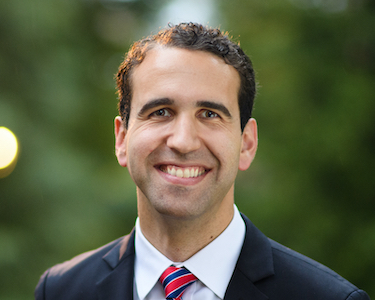
Brian Bird
Brian Bird is an assistant professor at the Peter A. Allard School of Law at the University of British Columbia. Before joining Allard Law, Brian was a postdoctoral research fellow at Princeton University in the James Madison Program in American Ideals and Institutions. At Princeton, Brian was also a lecturer in Politics. Brian’s academic writing has appeared in several academic journals and his writing on current affairs has appeared in a variety of media outlets. Brian has co-edited two books on Canadian constitutional law: The Forgotten Fundamental Freedoms of the Charter (2020) and Forgotten Foundations of the Canadian Constitution (2022). Brian clerked for judges of the Supreme Court of British Columbia and for the Honourable Justice Andromache Karakatsanis at the Supreme Court of Canada. He completed his doctorate at McGill University. He also holds degrees from the University of Oxford, the University of Victoria and Simon Fraser University.

Maxwell A. Cameron
Maxwell A. Cameron specializes in comparative politics (Latin America), constitutionalism, democracy, and political economy. He is the author or editor of a dozen academic books as well as over fifty peer-reviewed articles and book chapters. His books include: Strong Constitutions and Political Institutions and Practical Wisdom. Cameron has held visiting positions in the Kellogg Institute for International Studies at Notre Dame University (1996) and at Yale University, where he was the Canadian Bicentennial Professor in 2005. In 2006 he served as political advisor to the OAS Electoral Observation Mission in Peru. He has served as the Director of the Centre for the Study of Democratic Institutions, in which capacity he co-created the Institute for Future Legislators. In 2011-12 he was a Peter Wall Institute for Advanced Studies Distinguished Scholar-in-Residence, and in 2013 he was awarded a UBC Killam Teaching Prize. In 2020 Cameron was named a Distinguished Fellow by the Canadian Association of Latin American and Caribbean Studies. He was the recipient of the 2022 Guillermo O’Donnell Democracy Award and Lectureship by the Latin American Studies Association for his work on democracy in Latin America. Professor Cameron is jointly appointed with Political Science and the School of Public Policy and Global Affairs (SPPGA).

Kathryn Chan
Kathryn Chan is an associate professor at the University of Victoria Faculty of Law, and, for 2022-23, the acting director of the University of Victoria’s Centre for Studies in Religion and Society. Her research interests lie at the intersection of constitutional law, law and religion, non-profit law, and administrative law. Kathryn practiced non-profit law for several years in Vancouver before entering the academy. She holds a J.D. from the University of Toronto, a B.Mus. and LL.M from McGill University, and a D.Phil from the University of Oxford, where she was a Trudeau Foundation scholar. Representative publications include The Public-Private Nature of Charity Law, (Hart Bloomsbury, 2016) and “Religious Institutionalism: A Feminist Response” (University of Toronto Law Journal, 2021).
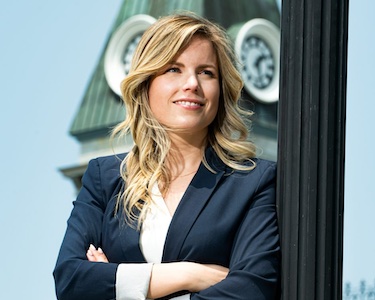
Stéphanie Chouinard
Stéphanie Chouinard is an associate professor of political science at the Royal Military College of Canada (Kingston), cross-appointed at Queen’s University. She is a Fellow of the Pierre Elliott Trudeau Foundation and a Vanier Scholar. Her research interests focus on the relationship between courts and minorities in democratic systems, and particularly the Supreme Court of Canada’s impact on the scope of minority-language rights and Indigenous self-determination. Her research has been published in Ethnopolitics, the Language Rights Review, the Canadian journal of Political Science, and the International Journal of Canadian Studies, among others.

Erin Crandall
Erin Crandall is an associate professor in the Department of Politics at Acadia University and holds a PhD in Political Science from McGill University. Her research sits primarily at the intersection of Canadian law and politics, including studies of judicial selection systems, constitutional amendment, and election law. Her work has appeared in the Canadian Journal of Political Science, Canadian Journal of Law and Society, and Public Policy and Administration, among other publications. Along with Andrea Lawlor (King’s University College, Western University), she is currently undertaking a SSHRC-funded project on public support for the Supreme Court of Canada.

Keith Culver
Keith Culver is a professor of Management, Associate Dean for Regional Innovation Practice, and Director of UBC’s Survive and Thrive Applied Research initiative. He completed his doctoral studies under Wil Waluchow, Joseph Raz, and Sir Neil MacCormick. Originally educated as a legal theorist, his current work focuses on the intersection of law, public safety, and national security. Representative publications include: Culver and Giudice, The Unsteady State, Cambridge, 2017; Culver and Giudice, Legality’s Borders, Oxford 2010; Culver and Giudice, eds., Readings in the Philosophy of Law, 3rd edn, Broadview 2017; Culver, Giudice and Bickenbach, eds., Canadian Cases in the Philosophy of Law, Broadview, 2019.
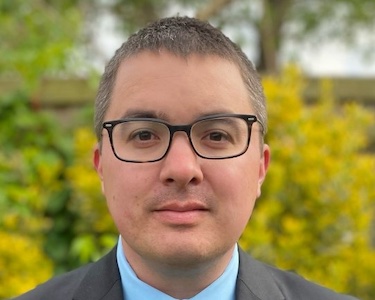
Michael Da Silva
Michael Da Silva is a lecturer (assistant professor equivalent) in the University of Southampton School of Law where, among other tasks, he teaches Canadian Constitutional Law and coordinates the two-year Law Accelerated Programme JD Pathway (LLB) that teaches both English and Canadian law. He is also a member of the New York Bar. Michael’s primary research interests are in constitutional and administrative law; legal and political philosophy; health law, policy, and ethics; and the intersections between them. His publications include a book (The Pluralist Right to Health Care: A Framework and Case Study (Toronto: University of Toronto Press, 2021) and numerous publications in law (e.g., in the Osgoode Hall Law Journal and the Michigan Journal of International Law), philosophy (e.g., Social Theory and Practice, the Journal of Value Inquiry, and Ratio Juris), and bioethics (e.g., Bioethics and Public Health Ethics) journals. He wrote the Philosophy Compass article on “Federalism: Contemporary Political Philosophy Issues.”

Yasmin Dawood
Yasmin Dawood is the Canada Research Chair in Democracy, Constitutionalism, and Electoral Law, and professor of law at the Faculty of Law, University of Toronto, with a courtesy appointment in the Department of Political Science. She specializes in election law, comparative constitutional law, and democratic theory. Her scholarship, which is broadly concerned with improving electoral fairness and democratic governance, has addressed such topics as the right to vote, campaign finance, partisanship, electoral redistricting, and the judicial review of the democratic process. She is the co-editor of Constitutionalism and a Right to Effective Government? (Cambridge 2022). She has testified as an election law expert before Parliamentary committees, and has been interviewed on election law issues by various media. She was named a member of the Royal Society of Canada College, in 2018. She holds a Ph.D. (political science) from the University of Chicago, a J.D. from Columbia Law School, and an Honours B.A. in political science from the University of Toronto. She teaches constitutional law, the law of democracy, and legal methods. In 2020, professor Dawood was awarded the Mewett Award for Teaching Excellence, and was the co-recipient of the Legal Excellence Award from the South Asian Bar Association.

Rosalind Dixon
Rosalind Dixon is a professor of law at the University of New South Wales in Sydney. She teaches and researches in the field of comparative constitutional law. She previously served as an assistant professor at the University of Chicago Law School, and has been a visiting professor at the University of Chicago, Columbia Law School, Harvard Law School and the National University of Singapore. She is a past co-president of the International Society of Public Law and a fellow of the Australian Academy of Arts and Social Sciences.

Minh Do
Minh Do is an assistant professor of Political Science at the University of Guelph and her research interests lie at the intersection of Canadian law and politics, public policy, and Indigenous politics. She is particularly interested in how judicial decisions structure policy actors’ behaviours, choices, and strategies. Her work to date has been published in the Canadian Journal of Political Science and the International Journal of Canadian Studies. Her book project focuses on the implementation of the duty to consult and accommodate Indigenous peoples in B.C.’s Environmental Assessment Process. She completed her BA at the University of Victoria, MA at the University of Waterloo, and PhD at the University of Toronto.

Richard Ekins
Richard Ekins is Professor of Law and Constitutional Government in the University of Oxford and a Fellow of St John’s College, Oxford. He leads the Programme for the Foundations of Law and Constitutional Government in the University of Oxford (with Nick Barber and Timothy Endicott) and Policy Exchange’s Judicial Power Project. His published work includes The Nature of Legislative Intent (OUP, 2012) and the jointly authored work Legislated Rights: Securing Human Rights through Legislation (Cambridge, 2018). In December 2022, the King approved his appointment as Honorary King’s Counsel, an award made to recognise those in the legal profession who have made a major contribution to the law of England and Wales outside the courtroom.

Brad Epperly
Brad Epperly is an associate professor of Political Science at the University of British Columbia Okanagan. His research interests are broadly focused on matters related to the rule of law, from the determinants of independent courts to the use of law to undermine rights to the legacies of authoritarian governance. His work is published in various journals, including the Journal of Law and Courts, Perspectives on Politics, and Comparative Political Studies; his book The Political Foundations of Judicial Independence in Dictatorship and Democracy was published in 2019 by Oxford University Press. He earned his PhD from the University of Washington, and prior to moving back to Cascadia he was an assistant professor at the University of South Carolina, where he was the first political scientist to win the university’s highest distinction in undergraduate teaching. More info and his publications can be found at www.bradepperly.com
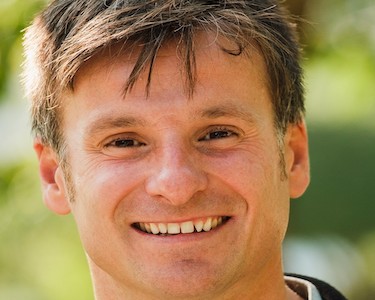
Julen Etxabe
Julen Etxabe is Canada Research Chair in Jurisprudence and Human Rights and joined the UBC Allard Faculty of Law as assistant professor in July of 2019. His current research combines legal and literary theory to identify a new model of dialogical judgment emerging in the area of human rights, which is transforming inherited notions of reasoning, rights, authority, and law in the post-national and diverse societies of the 21st century. Grounded on cultural and humanistic approaches to law, Etxabe is the author of The Experience of Tragic Judgment (Routledge, 2013) and has edited Cultural History of Law in Antiquity (Bloomsbury, 2019). He is also the co-editor of Rancière and Law (Routledge, 2018) and Living in a Law Transformed: Encounters with the Works of James Boyd White (Michigan, 2014). From 2012 to 2017 he was editor-in-chief of No-Foundations: An Interdisciplinary Journal of Law and Justice and is a member of the editorial committee of Law & Humanities. Prior to joining Allard, professor Etxabe was a Core Fellow at the Helsinki Collegium for Advanced Studies and postdoctoral researcher at the Center of Excellence in Foundations of European Law of the University of Helsinki. In addition, he has been a visiting researcher at Reed College (Portland, OR), the Australian National University College of Law, the School of Law and Justice at Southern Cross University in Australia, and Facultés Universitaires Saint Louis in Brussels. He has taught both graduate seminars and undergraduate courses at the University of Michigan and the University of Helsinki and supervises doctoral students in several areas of law and interdisciplinary studies. Professor Etxabe has been a recipient of numerous fellowships, such as the Fulbright Fellowship to pursue doctoral studies at the University of Michigan Law School and the Kone Foundation Research Grant from Finland.
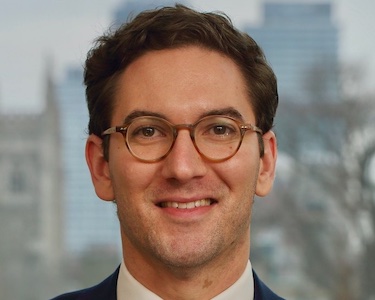
Connor Ewing
Connor Ewing is assistant professor of Political Science and Fellow of Trinity College at the University of Toronto. Located in the fields of American Politics and Public Law, his research interests span American political thought and development, constitutional law and theory, federalism, rights jurisprudence, human dignity, and constitutional design. Previously he was a Kinder Institute assistant professor of Constitutional Democracy and assistant professor of Political Science at the University of Missouri and, before that, a Postdoctoral Research Associate in the Program on Constitutionalism & Democracy at the University of Virginia. He received his Ph.D. in Government from the University of Texas at Austin, A.M. in Social Sciences from the University of Chicago, and B.A. in Philosophy and Political Science from the University of Wisconsin—Madison.

Renaud-Philippe Garner
Renaud-Philippe Garner is an assistant professor in the Department of Economics, Philosophy and Political Science at the University of British Columbia Okanagan. Previously, he completed postdoctoral fellowships at the Aarhus University and the University of Colorado Boulder. He received his Ph.D. in philosophy from the University of Toronto with a dissertation on patriotism as a virtue (2019). He has published his work in The Journal of Philosophy, The European Review of International Studies, Synthese, The Oxford Research Encyclopedia of Politics, and Presses universitaires de France. He has written on the ethics of war, nationalism, social epistemology, as well as human passions. Primarily, he works in value theory, at the crossroads of political and moral philosophy. His research is empirically informed, particularly by findings in social psychology and history.

Mark Harding
Mark Harding is an assistant professor in the Department of Political Science at the University of Guelph. Professor Harding completed his graduate work in political science (MA, PhD) at the University of Calgary. His research and teaching interests include judicial politics, Canadian politics, bills of rights in Commonwealth countries, political theory, constitutionalism and political institutions. Prior to joining the University of Guelph, he taught at the University of Calgary’s School of Public Policy in its MPP program. Mark was the 2015-16 Frances Spratt Fellow at the Calgary Institute of the Humanities and held a Killam Memorial Scholarship (2014-16). Professor Harding’s main research focus is examining and comparing the growth of judicial power in Canada, New Zealand, and the United Kingdom. He also researches how the Supreme Court of Canada defines the role of other political institutions through its jurisprudence. His book Judicializing Everything was published by the University of Toronto Press in 2022.

Thomas Heilke
Thomas Heilke is professor of Political Science in the Faculty of Arts and Social Sciences at the University of British Columbia. He received his Ph.D. in political science from Duke University in 1990. He has held a variety of administrative positions at UBC and at the University of Kansas, where he was on faculty for 23 years before coming to UBC. He is author, co-author, editor, or co-editor of publications in the areas of political theory, politics and religion, and international relations, including Voegelin on the Idea of Race (1990); Great Ideas/Grand Schemes: Political Ideologies in the 19th and Twentieth Centuries (1996); Nietzsche’s Tragic Regime: Culture, Aesthetics, and Political Education (1998); Eric Voegelin: The Quest for Reality (1999); Persons in Politics: Studies in Empirical Political Science (2013); and Hunting and Weaving: Essays on Empirical Political Science (2013). Venues for his published articles have included The American Political Science Review; Review of Politics; Political Theory; Interpretation; and Modern Theology. His current research is focussed on the roles of religious beliefs and practices in domestic, international, and world politics; the nature and secular functions of modern, post-modern, and nonmodern political theologies; and, pluralism and suffering.

James Kelly
James B. Kelly is a professor in the Department of Political Science at Concordia University in Montreal, Canada. He obtained his doctorate from McGill University (1999) and his undergraduate degree (honours) in political science from the University of Toronto (1992). His research focuses on the judicialization of politics in advanced Westminster systems such as Canada, New Zealand, the United Kingdom, and Northern Ireland, that have resulted with the introduction of constitutional or statutory bills of rights. He is the author of Governing with the Charter: Legislative and Judicial Activism and Framers’ Intent (UBC Press, 2005), co-editor of Contested Constitutionalism: Reflections on the Canadian Charter of Rights (UBC Press, 2009), and co-author of Parliamentary Bills of Rights: the experiences of New Zealand and the United Kingdom (Cambridge University Press, 2016).

Gerard J. Kennedy
Gerard J. Kennedy is an assistant professor in the Faculty of Law at the University of Manitoba, where he teaches and researches in the areas of civil litigation and procedure, constitutional law, and administrative law. Throughout his scholarship is an analysis of the role of courts in Canada’s constitutional order. He is the present author of The Charter of Rights in Litigation: Direction from the Supreme Court of Canada (Thomson Reuters) and co-editor of The Civil Litigation Process, 9th edition (Emond Montgomery). He has also published dozens of journal articles and blog posts, two book chapters, and several book reviews. His scholarship has been cited by many courts and tribunals across Canada, including the Court of Appeal for Ontario and Supreme Court of Canada. Kennedy holds a Ph.D. from Osgoode Hall Law School (where he held a Trudeau Scholarship), an LL.M. from Harvard Law School (where he was a Frank Knox Fellow), a J.D. from Queen’s University (where he won the Dean’s Key), and a B.A. from St. Michael’s College of the University of Toronto. Prior to entering full-time academia, Kennedy was a litigator at Osler, Hoskin & Harcourt LLP in Toronto.

Rainer Knopff
A professor emeritus of political science at the University of Calgary, Rainer Knopff has written widely on public law, human rights, conservation, and Canadian political thought. His books include The Charter Revolution and the Court Party and Charter Politics (both with F.L. Morton), Human Rights and Social Technology: The New War on Discrimination (with T.E. Flanagan), and Parameters of Power: Canada’s Political Institutions (with Keith Archer, Roger Gibbins, and Leslie A. Pal). Knopff has consulted for the federal and provincial governments, been an expert witness in court cases, and served on the federal electoral boundaries commission for Alberta. He was part of the Consultation Committee that advised the appointment of David Johnston as Governor General of Canada.

Hoi Kong
Hoi Kong is the inaugural holder of The Rt. Hon. Beverley McLachlin, P.C., UBC Professorship in Constitutional Law, which he assumed in 2018. He is a Senior Research Fellow at the University of Texas at Austin’s Program on Comparative Constitutional Studies and a Peter Wall Scholar (2020-2021). He researches and teaches in the areas of constitutional, administrative, municipal and comparative law, and constitutional and public law theory. Professor Kong co-directs with professor Ron Levy (the Australian National University) the Project on Deliberative Governance and Law. He also directs a research axis at the Centre for Interdisciplinary Research on Montreal and is on the editorial boards of the Review of Constitutional Studies and American Journal of Comparative Law, as well as the international board of distinguished advisors for the Federal Law Review.

Samuel V. LaSelva
Samuel V. LaSelva is a professor of political science at the University of British Columbia. He holds a M.A. from the University of Western Ontario and a D.Phil. from Oxford. His publications include The Moral Foundations of Canadian Federalism: Paradoxes, Achievements and Tragedies of Nationhood (1996) and Canada and the Ethics of Constitutionalism: Identity, Destiny and Constitutional Faith (2018). He received the Canadian Political Science Association’s Smiley Prize in 1998 and in 2019. He is also the author of “Indigenous Sovereignty, Canadian Constitutionalism, and Citizens Plus: The Unended Quest of Canada’s Original Hedgefox,” in Kate Puddister and Emmett Macfarlane, eds., Constitutional Crossroads (2022).

Malcolm Lavoie
Malcolm Lavoie is an associate professor with the University of Alberta Faculty of Law. His research deals with property law and constitutional law. He holds a BA in Economics from the University of British Columbia, MSc in Political Theory from the London School of Economics, BCL and LLB from the McGill University Faculty of Law, and LLM and SJD from Harvard Law School, where he studied as a Frank Knox Fellow. He clerked for the Hon. Justice Frans Slatter of the Alberta Court of Appeal (2012-2013) and for the Hon. Justice Rosalie Abella of the Supreme Court of Canada (2013-2014). He is a past recipient of the Canadian Association of Law Teachers (CALT) Scholarly Paper Award. His scholarship has also been cited by the Supreme Court of Canada. In addition to his research and teaching, Malcolm is an active member of the Alberta Bar. In his practice, he consults on civil litigation, as well as constitutional and regulatory issues. He has previously argued two cases before the Supreme Court of Canada. Malcolm currently serves on the Alberta Judicial Council and the boards of the Edmonton Bar Association and the Centre for Constitutional Studies.

Nomi Claire Lazar
Nomi Claire Lazar is professor in the Graduate School of Public and International Affairs at the University of Ottawa. Her wide-ranging work on emergency powers, constitutions, and crisis government includes the books States of Emergency in Liberal Democracies (Cambridge Press, 2009/13) and Out of Joint: Power, Crisis, and the Rhetoric of Time (Yale Press, 2019). Professor Lazar holds degrees from Yale (PhD 2005, Political Science),Toronto (HonBA, Philosophy), and UCL School of Public Policy (MA, Legal and Political Theory). She has taught at the University of Chicago and Yale, and served as Associate Dean of Faculty at Yale-NUS College. Beyond her academic work, professor Lazar is active in civil society. She worked with Justice Canada on the policy framework around the Youth Criminal Justice Act, regularly serves as a poll worker for elections, and works on prisoners’ rights issues. She currently sits on the Executive Committee of the University of Ottawa’s Governing Board. In 2022, professor Lazar was appointed to serve on the Public Order Emergency Commission, investigating the events of convoy crisis and the federal Government’s use of the Emergencies Act.
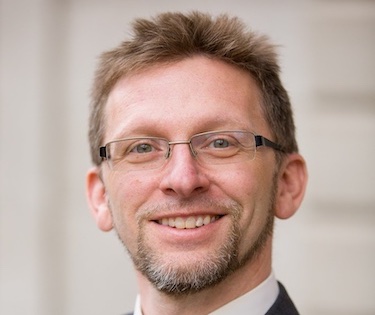
Jacob T. Levy
Jacob T. Levy is Tomlinson Professor of Political Theory, Chair of the Department of Political Science, and associated faculty in the Department of Philosophy at McGill University. He is the coordinator of McGill’s Research Group on Constitutional Studies and was the founding director of McGill’s Yan P. Lin Centre for the Study of Freedom and Global Orders in the Ancient and Modern Worlds. He is the author of The Multiculturalism of Fear (OUP 2000) and Rationalism, Pluralism, and Freedom (OUP 2014), and editor or coeditor of Colonialism and Its Legacies; Nomos LV: Federalism and Subsidiarity; Interpreting Modernity: Essays on the Work of Charles Taylor; and the forthcoming Oxford Handbook of Classics in Contemporary Political Theory. He is a Senior Fellow at the Niskanen Center. He holds a B.A. in Political Science from Brown University, an M.A. and Ph.D. in Politics from Princeton University, and an LL.M. from the University of Chicago Law School. He serves on the editorial board of The American Political Science Review and Political Studies. His writing on contemporary questions has been published in venues including The New York Times, The Washington Post,, The Los Angeles Times, The Chicago Tribune, Vox, Foreign Policy, Salon, Reason, and The Chronicle of Higher Education.
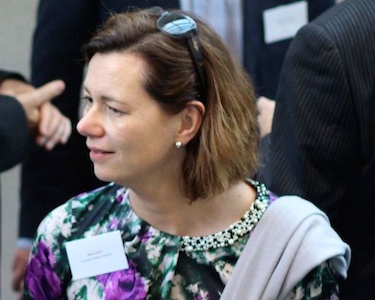
Mary Liston
Mary Liston is an associate professor at the Peter A. Allard School of Law, University of British Columbia. She teaches public law including administrative and constitutional law, legal theory, and law and literature. Her work grapples with the normative and institutional challenges that political power poses for the rule of law and democratic governance and addresses—where possible—the legal means to improve accountability, public participation, and structures of justification for state action. Professor Liston has also developed expertise in interpretive methodologies and multijuralism in Canada. She brings a comparative perspective to her work examining public law in Australia, New Zealand, South Africa, the United Kingdom, and the United States, and also when considering legal pluralism and Indigenous legal orders within Canada. Dr. Liston is a co-author of Public Law: Cases, Commentary and Analysis, 4th ed (Emond 2020) and a core contributor to Administrative Law in Context, 4th ed (Emond 2021). She holds a Ph.D. in Political Science and an LLB from the University of Toronto, a Master’s degree in Social and Political Thought from York University, and a B.A. (Honours) in English Language and Literature from Western University. She is a co-convenor of the Canadian Network of Law & Humanities.

Spencer Livingstone
Spencer Livingstone is a PhD in Law candidate at Yale Law School, where he is also a Resident Fellow with the Information Society Project. Operating at the intersection of procedure and public law, his research focuses on the scope and limits of judicial power in contemporary constitutional systems. It more broadly explores theoretical issues of adjudicatory authority in pluralist systems, examined from both historical and comparative perspectives. Both within and beyond his dissertation, Guardians of the Constitution, his writings cover a range of topics, including the law of remedies, justiciability, appellate structure, criminal law and procedure, and constitutional interpretation. He received his J.D. magna cum laude from Harvard Law School, where he also served as the Articles, Book Reviews and Commentaries Chair of the Harvard Law Review. Before beginning his doctorate, he clerked for the Honourable Justice Michael J. Moldaver of the Supreme Court of Canada.

Vanessa MacDonnell
Vanessa MacDonnell is an associate professor at the University of Ottawa Faculty of Law and co-director of the University of Ottawa Public Law Centre. She researches in the areas of Canadian constitutional law, constitutional theory, comparative constitutional law, and criminal law and procedure. She is a former Scholar-in-Residence in the Constitutional, Administrative and International Law Section of Justice Canada and a member of the Global Young Academy.
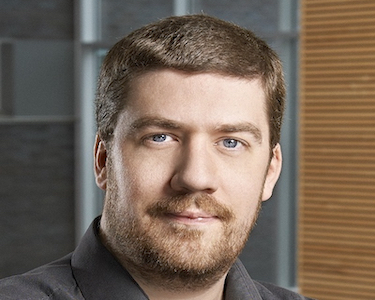
Emmett Macfarlane
Emmett Macfarlane is a professor of political science at the University of Waterloo whose research focuses on the intersection of governance, constitutional law, and public policy. He is the author of Governing from the Bench: The Supreme Court of Canada and the Judicial Role (UBC Press, 2013) and Constitutional Pariah: Reference re Senate Reform and the Future of Parliament (UBC Press, 2021), and the editor of Constitutional Amendment in Canada (University of Toronto Press, 2016), Policy Change, Courts, and the Canadian Constitution (University of Toronto Press, 2018), and Dilemmas of Free Expression (University of Toronto Press, 2022). He has published over 30 journal articles and book chapters in outlets including the International Journal of Constitutional Law, Canadian Journal of Political Science, McGill Law Journal, Supreme Court Law Review, and International Political Science Review.

Mark Mancini
Mark Mancini is a PhD student at the University of British Columbia, Peter A. Allard School of Law. He holds a J.D. from the University of New Brunswick, Faculty of Law, and an LL.M. from the University of Chicago Law School. He holds a Social Sciences and Humanities Research Council Bombardier award in support of his doctoral studies. He has been published in popular publications and academic journals across Canada. His research interests centre around the law of judicial review, administrative law more broadly, and statutory interpretation. He publishes the weekly newsletter, the Sunday Evening Administrative Review.

Blair Major
Blair Major is an assistant professor at the Thompson Rivers University Faculty of Law, where he teaches courses on administrative law, remedies, legal foundations, and law and religion. Dr. Major’s primary area of research and writing is on the topic of law and religion, in both Canadian and international contexts. His scholarship includes a mix of legal theory and substantive doctrinal analysis. Dr. Major holds law degrees from the University of Alberta and McGill University. He is also a member of the Law Society of Alberta.

Carissima Mathen
Carissima Mathen, LSM is a professor of law at the University of Ottawa. She holds degrees from McGill University, Osgoode Hall Law School and Columbia University. Professor Mathen has published on all aspects of constitutional and criminal law. Numerous courts including the Supreme Court of Canada have cited her scholarship. In 2021, her monograph Courts Without Cases: The Law and Politics of Advisory Opinions won Second Place Distinction in the prestigious Walter Owen Book Competition. Her most recent book is The Tenth Justice: Judicial Appointments, Marc Nadon and the Supreme Court Act Reference (UBC Press). Before joining the academy, she was a constitutional litigator involved in path-breaking decisions on equality rights, sexual assault and the nature of judicial review.
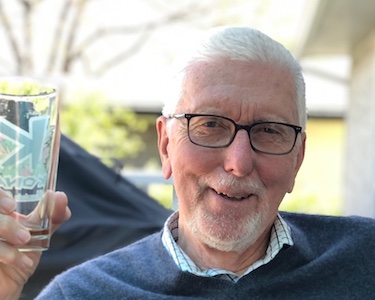
Barrie McCullough
Barrie McCollough completed a B.A. the University of Alberta and a Master’s degree at Harvard University before going to Oxford University where he completed his B.Litt. in philosophy in 1973. In 1987 he completed a Ph.D. in constitutional law and government under William Letwin at the London School of Economics. Subsequently he published papers with The Pepperdine Law Review, The International and Comparative Law Quarterly, Australian Journal of Political Science, The European Legacy, and Skepsis. In addition he has published works in political ideologies with Oxford University Press (Canada). His teaching included positions at the University of Alberta, the University of Calgary, Okanagan University College, and the University of British Columbia. One of his most prized achievements was assisting in the establishment of the PPE Program at UBCO. His present areas of interest comprise Canadian constitutional issues and specific issues in epistemology and metaphysics. From 2005 to 2011 he was the UBCO faculty representative on the UBC Board of Governors. Upon retirement he taught for several months at the Beijing Foreign Studies University in its Canadian Studies Program.

Andrew McDougall
Andrew McDougall is an assistant professor in Canadian politics and public law. He researches Canadian constitutional law and politics, federalism, intergovernmental relations, and Quebec nationalism. He received his B.A. (Hons) from the University of Toronto, and received an M.A. in political science and an LL.B. from Queen’s University. He worked as a lawyer on Bay Street as a securities litigator and corporate lawyer, after which he returned to academia and completed a Ph.D. on Canadian federalism from the University of Toronto. Among other journals, Andrew’s work has appeared in the Canadian Journal of Political Science, Canadian Public Administration and Publius: The Journal of Federalism (with Robert Schertzer and Grace Skogstad). He is also the co-editor a major, two-volume book on Confederation (with Jaqueline Krikorian, David Cameron, Marcel Martel, and Robert Vipond), entitled Road to Confederation (University of Toronto Press, 2017).
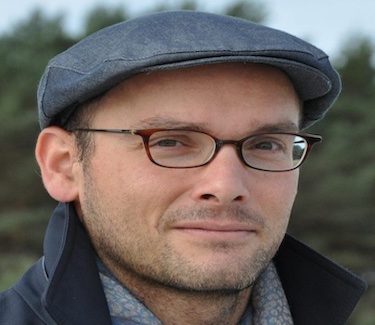
Florian Meinel
Florian Meinel is a full professor of law at the Georg-August-Universität Göttingen, where he teaches Comparative Constitutional Law and Political Science. He studied law at Humboldt University but escaped the legal profession for four years after his first state exam in 2006 to be a PhD student at the Berlin Social Science Center. He later returned to the Faculty of Law at Humboldt as a senior research fellow from 2012 to 2015 and as fellow of the German Research Council (DFG) from 2015 to 2018. He was elected Member of the Young Academy of the Berlin-Brandenburg Academy of Sciences and Humanities and the Leopoldina in 2014. Before joining the law faculty at Göttingen, he was professor of Public Law and Jurisprudence at Julius-Maximilians-Universität Würzburg (Bavaria). During the academic year 2021-2, Florian Meinel was a Senior Mercator Fellow of the Mercator Foundation and Visiting Scholar at Harvard Law School. His research areas include constitutional law and theory (Germany’s Dual Constitution: Parliamentary Government in the Federal Republic, Hart: 2021), history of political thought, and law and political economy.
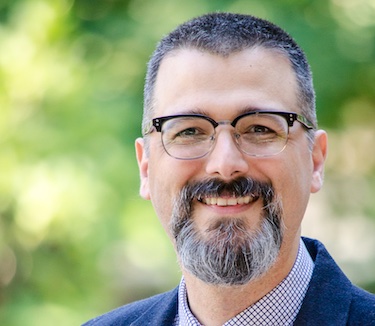
Victor M. Muniz-Fraticelli
Victor M. Muniz-Fraticelli is associate professor of Law and Political Science at McGill University. He received his PhD in Political Science from the University of Chicago (2008) and his JD from the University of Puerto Rico (1999) and clerked at the Supreme Court of Puerto Rico. His interests range across philosophy, politics, and law. He is the author of The Structure of Pluralism (Oxford 2014) and several articles on legal and political pluralism, church-state relations, intergenerational justice, constitutionalism, and theories of justice. His current work concerns political theology and the institutional dimensions of freedom of religion freedom, especially religious schooling. In 2019, he received a New Directions Fellowship from The Andrew W. Mellon Foundation to study at Harvard Divinity School and the Boston College School of Theology and Ministry.

Dwight Newman
Dwight Newman, QC, is Professor of Law and 2013-2023 Canada Research Chair in Indigenous Rights in Constitutional and International Law at the University of Saskatchewan. He holds a BA in Economics (Regina), MATS in History of Christianity (Regent College), JD (Saskatchewan), MSc in Finance and Financial Law (SOAS, University of London), BCL, MPhil, and DPhil in Legal Philosophy (Oxford). Following law school, he clerked for Chief Justice Lamer and Justice LeBel at the Supreme Court of Canada, and he worked for human rights NGOs in South Africa and Hong Kong and for Justice Canada in Ottawa. Since joining the University of Saskatchewan faculty, he has published widely on constitutional law issues, Indigenous rights issues, law and religion, and other areas. Along with a hundred articles or chapters, he has published fifteen books, including a monograph on Community and Collective Rights: A Theoretical Framework for Rights Held by Groups (Hart/Bloomsbury) and the coauthored treatise Law of the Canadian Constitution (LexisNexis), and his writings have been cited by the Supreme Court of Canada in many Indigenous rights cases and other constitutional cases. He has held visiting appointments around the world, including at Cambridge, Oxford, and Princeton.
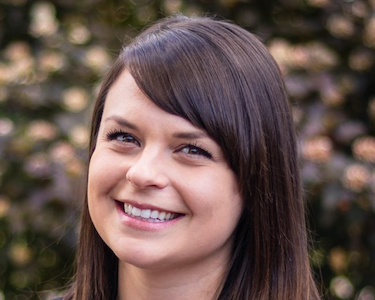
Kate Puddister
Kate Puddister is an associate professor in the Department of Political Science at the University of Guelph. Dr. Puddister’s research and teaching focus on law and politics, criminal justice policy and Canadian politics. She is the author of Seeking the Court’s Advice: The Politics of the Canadian Reference Power (UBC Press, 2019) and the co-editor of Constitutional Crossroads: Contemplations on Charter Rights, Reconciliation and Constitutional Change (UBC Press, 2022). Dr. Puddister’s work has appeared in the Canadian Journal of Law and Society, Canadian Journal of Political Science, Publius: The Journal of Federalism, Revue Général de Droit, among others. Her recent and ongoing work examines police oversight and accountability, principle of open court in the digital age, sentencing policy, and the Canadian reference power. Dr. Puddister holds a B.A. (honours) in Criminal Justice and Public Policy from the University of Guelph, an M.A. in Criminology and Criminal Justice Policy from the University of Guelph, and a Ph.D. in Political Science from McGill University.

Emmanuelle Richez
Emmanuelle Richez is an associate professor of political science at the University of Windsor. Her research examines law and politics in Canada, with a current focus on official language rights. She is a federally appointed member of the Official Languages Rights Expert Panel of the Court Challenges Program of Canada. Emmanuelle is a researcher affiliated with the Centre d’analyse politique – Constitution et fédéralisme of UQAM and the Centre d’Études et de Recherches Comparatives sur les Constitutions, les Libertés et l’État of the Université de Bordeaux. She is also a board member of the Canadian Study of Parliament Group. She holds a Ph.D. in Political Science from McGill University, as well as a Master’s degree from Université Laval and a B.A. from the University of Ottawa.

Troy Riddell
Troy Riddell is an associate professor of political science at the University of Guelph. He is a co-author of Canadian Courts: Law, Politics, and Process. His research interests include judicial politics and decision-making, and criminal justice policy. His work has appeared in the Canadian Journal of Political Science, Law and Society, Osgoode Hall Law Journal, Canadian Journal of Criminology and Criminal Justice and the Ottawa Law Review. He holds a PhD in political science from McGill University.

Halina Sapeha
Halina Sapeha is an assistant professor of international law and politics in the Department of Economics, Philosophy and Political Science at the University of British Columbia, Okanagan campus. Her academic background is interdisciplinary and includes political science, law, European studies, international relations, and comparative public policy. Halina has conducted quantitative and qualitative research at the University of Victoria, United Nations University, Memorial University of Newfoundland, Toronto Metropolitan University, and McMaster University. Multilingual, she previously held posts in international agencies and think tanks throughout Europe, and worked on surveys in Canada and abroad for COMPAS Research. Halina’s research interests lie in global governance, international law, and evidence-informed policy-making.
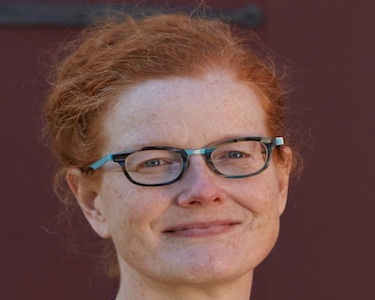
Christa Scholtz
Christa Scholtz was born and raised in Treaty 6 territory (Edmonton, Alberta). She completed a PhD in comparative politics at Princeton University. She is an associate professor in the Department of Political Science at McGill University. She researches and teaches in the areas of Settler-Indigenous politics and policy, comparative and Canadian politics, constitutionalism, and federalism. She is especially interested in the intersection between law and politics, particularly when and how legal rules shape political behaviour. Her work has appeared in the Canadian Journal of Political Science, the Canadian Journal of Law and Society, the University of Toronto Law Journal, and Constitutional Political Economy.
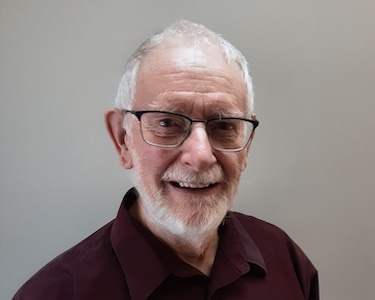
Roger Shiner
Roger A. Shiner is an adjunct professor in the Department of Economics, Philosophy and Political Science at UBC Okanagan, and an Emeritus Professor of Philosophy, the University of Alberta. He taught at the U of A from 1964 to 1999, and at UBCO and Okanagan College from 2002 to 2018. Although he started his career as a classicist working in Ancient Philosophy, since 1975 his main area of teaching and research has been Jurisprudence and Philosophy of Law. He has also taught and published in Business Ethics, and taught Social and Political Philosophy, Computer Ethics and Criminal Justice Ethics. His books include Norm and Nature: The Movements of Legal Thought (OUP 1992), Freedom of Commercial Expression (OUP 2003) and Legal Institutions and the Sources of Law (Springer 2005). He has published widely in law reviews and philosophy journals. He has held a Killam Senior Fellowship (1992-94), an H.L.A. Hart Visiting Fellowship at Oxford University (2006), and the position of Virtual Scholar in Residence at the Law Commission of Canada (2005-06). Most recently his research has been in the foundations of criminal law, especially with respect to corporate criminal liability.
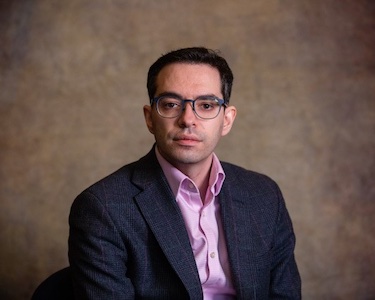
Leonid Sirota
Leonid Sirota is an associate professor in the School of Law at the University of Reading, in the United Kingdom, where he teaches public law. His research interests include the rule of law, constitutional interpretation, administrative law theory, the freedoms of conscience and expression, election law, and other aspects of public law in Canada and elsewhere. He is the founder and co-author of the award-winning Double Aspect blog. Sirota is a graduate of the McGill University Faculty of Law and of the NYU School of Law. He has served as a law clerk at the Federal Court of Canada and, prior to moving to Reading, taught at the Auckland University of Technology in New Zealand.
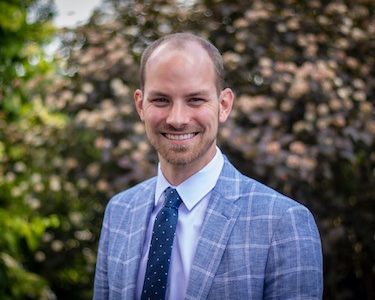
Dave Snow
Dave Snow is an associate professor in the Department of Political Science at the University of Guelph. His research and teaching interests include public policy, constitutional law, and federalism. He is the author of Assisted Reproduction Policy in Canada: Framing, Federalism, and Failure (2018) and the co-editor (with F.L. Morton) of the textbook Law, Politics, and the Judicial Process in Canada (4th edition, 2018). Prior to moving to Guelph, Dave completed his PhD in political science at the University of Calgary, and was a Killam Postdoctoral Fellow in the Faculty of Medicine at Dalhousie University from 2014-2015. His current research project examines the Supreme Court of Canada’s jurisprudence regarding reasonable limits on Charter rights.

Maxime St-Hilaire
Maxime St-Hilaire holds a doctorate in law (LLD) from Laval University and is an associate professor at the Faculty of Law at Université de Sherbrooke, where he teaches constitutional law and legal philosophy. In 2021, he won this University’s research and creation award, in the human sciences category, for his book titled Les Positivismes juridiques au XXe siècle. Normativismes, sociologismes, réalismes (PUL, 2020). In 2014, he won the ‘’Prix Minerve 2014’’ award for his book titled La lutte pour la pleine reconnaissance des droits ancestraux: problématique juridique et enquête philosophique (Yvon Blais, 2015). He co-edited, with Joanna Baron, the book/special-issue Attacks on the Rule of Law from Within (Lexis/SCLR, 2019), and edited a special issue on the German philosopher “Axel Honneth and the Law” for Droit et Société in 2011. Professor St-Hilaire has published more than thirty five articles and chapters, among numerous other publications in scholarly and media sources, and given more than sixty talks around the world. He visited numerous research centres and universities, among which the Marc Bloch Centre (Berlin), the Norwegian Centre for Human Rights (Oslo), the Louvain Global College of Law (Louvain-la-Neuve, Belgium), and SciencePo’s Law School (Paris). While a doctoral student, he served as law clerk to the hon. Marie Deschamps J., at the Supreme Court of Canada (2009-10), after an internship at the Venice Commission (2007-8).

Anna Su
Anna Su is an associate professor at the University of Toronto Faculty of Law. She is currently a Faculty Fellow at the Schwartz Reisman Institute of Technology and Society at the University of Toronto. She researches in the areas of law and religion, law and history of international human rights, comparative constitutional law, and the human rights implications of technology. She is the author of Exporting Freedom: Religious Liberty and American Power (2016) and several articles on religious liberty and human rights.

Kerry Sun
Kerry Sun received his Juris Doctor from the University of Toronto, Faculty of Law. After serving as a law clerk at the Court of Appeal of Alberta and to Justice Sheilah L. Martin at the Supreme Court of Canada, he worked as a litigation associate in the New York office of Sullivan & Cromwell LLP. His academic interests include natural law theory, theory of private law, and methodologies of rights adjudication, and his writings have been published in Queen’s Law Journal, Dalhousie Journal of Legal Studies, Constitutional Forum, Ius & Iustitium, and the National Post.

Chas Tyler
Chas Tyler is an associate professor of Law at the George Washington University Law School. His teaching and research focus on federal courts and constitutional law. His academic work has appeared in the Yale Law Journal, the Columbia Law Review,and the University of Chicago Law Review, among others. Professor Tyler graduated summa cum laude from the University of Notre Dame and received a BPhil with distinction from Oxford University, where he was a Clarendon Scholar. He then earned his JD from Yale Law School, where he was an editor of the Yale Law Journal and a Beinecke Scholar. Prior to joining GW Law, he was a Visiting Professor of Law at both Stanford Law School and Peking University School of Transnational Law; a law clerk to Judge William Fletcher of the U.S. Court of Appeals for the Ninth Circuit and Justice Goodwin Liu of the California Supreme Court; and an associate in the Supreme Court and Appellate practice group at Orrick, Herrington & Sutcliffe.

Manuela Ungureanu
Manuela Ungureanu is a philosopher of language working in literacy and translation studies. A graduate of the University of Bucharest, Manuela earned her PhD from McGill University, where she wrote her PhD thesis on Chomsky’s critique of traditional theories of linguistic meaning and language mastery. In articles published more recently, she defends a broader theory of language so as to accommodate empirical data from cultural anthropology and developmental psychology, including those concerning specific meta-awareness skills children develop when exposed to literacy artifacts. She is the author of “A Momentous Triangle: Ontology, Methodology and Phenomenology in the Philosophy of Language,” (in Romanian Studies in the Philosophy of Science, I. Parvu, G. Sandu, I. D. Toader (eds.). Springer, 2015), and “Olson’s Domestication of Goody’s Literacy Hypothesis; (How) Can Philosophers of Language Help? (in Interchange: A Quarterly Review of Education, 2020). Manuela is currently principal investigator for a research project funded by SSHRC entitled “Confounding Freedoms: Academic Life at a Sovietized University and the Perks of Translation during Communism”, examining in what sense a historical account of knowledge production in non-democratic societies, such as those from the former Soviet Bloc, needs to deploy concepts such as academic freedom or freedom of speech.

Grégoire Webber
Grégoire Webber holds the Canada Research Chair in Public Law and Philosophy of Law at Queen’s Law. He is cross-appointed to the Department of Philosophy, and a visiting senior fellow at the London School of Economics and Political Science. His research is in the areas of human rights, public law, and philosophy of law. A graduate of McGill University with bachelors of civil law and common law and of the University of Oxford with a doctorate in law, where he studied as a Trudeau scholar, professor Webber clerked for Justice Ian Binnie of the Supreme Court of Canada, was senior policy advisor with the Privy Council Office, and was Legal Affairs Advisor to the Attorney General of Canada and Minister of Justice. He is joint founder and Executive Director of the Supreme Court Advocacy Institute, which provides free advocacy advice to counsel appearing before the Supreme Court of Canada. For his role in co-founding the Institute, he was awarded a Meritorious Service Medal by the Governor General of Canada.

Ben Woodfinden
Ben Woodfinden is a doctoral candidate at McGill University (ABD) and the Executive Director of Advocates for the Rule of law, a registered charity and think tank established to promote constitutionalism and the rule of law. His academic research focuses on Westminster constitutionalism and sits at the intersection of political theory, constitutional theory, and the history of political thought. His dissertation project, tentatively titled “The Democratic Crown” is an attempt to sketch out a history and constitutional theory of executive power in Westminster systems with a particular attention to how executive power should be exercised in the context of responsible government, and in relation to certain bedrock constitutional principles like democracy, efficiency, and respect for rights. In addition to his academic and scholarly work, Ben is also a regular contributor to the National Post and The Hub.

Yuan Yi Zhu
Yuan Yi Zhu is a research fellow at Harris Manchester College, University of Oxford and a senior research fellow at Policy Exchange’s Judicial Power Project. A political scientist and historian by training, his work is located at the intersection of public law, politics, and history. His recent publications have focused on a range of subjects, including the case against constitutional reform in the United Kingdom and the historical development of sovereignty within international law. In addition, he regularly advises governments on public law and international law matters and writes about current affairs for a range of publications. A native of Montreal, he studied at McGill University, the University of Cambridge, and the University of Oxford.